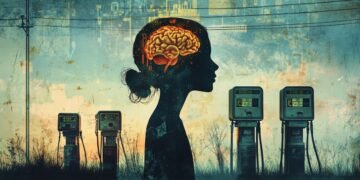In the intricate tapestry of human emotions and mental well-being, music stands as a timeless, universal language that transcends cultural and linguistic barriers. Its melodic contours, rhythmic pulses, and harmonic structures have the profound ability to evoke, soothe, and transform our innermost feelings. It is within this realm of emotional resonance that music therapy, an evidence-based practice, finds its niche, offering a unique and powerful tool for emotion management and psychotherapy. This article delves into the intricacies of how music therapy operates within the therapeutic landscape, exploring its mechanisms, applications, and transformative potential in fostering mental health and emotional resilience.

The Foundations of Music Therapy
Music therapy is a professional practice that uses music as a medium to address physical, emotional, cognitive, and social needs of individuals. Rooted in the principles of psychology, musicology, and psychotherapy, it employs a variety of musical interventions such as songwriting, listening, improvisation, and playing instruments to facilitate change and healing. Certified music therapists (MTs) undergo extensive training to integrate musical elements with therapeutic techniques, ensuring that sessions are tailored to meet the specific needs and goals of each client.
The efficacy of music therapy lies in its ability to tap into the limbic system—the brain’s emotional control center—which is deeply interconnected with auditory processing. This neural pathway allows music to bypass conscious defenses, directly accessing and influencing emotional states. Consequently, music therapy can be a potent catalyst for exploring, expressing, and regulating emotions, making it a valuable adjunct in various therapeutic contexts.
Mechanisms of Action in Emotion Regulation
- Emotional Expression and Catharsis: Music provides a non-verbal outlet for expressing complex emotions that may be difficult to articulate through words. By engaging in music-making or listening to emotionally resonant pieces, clients can experience catharsis, releasing pent-up emotions and finding a sense of relief.
- Mood Enhancement: The inherent mood-altering properties of music can be harnessed to elevate low mood states or calm heightened anxiety. Uplifting melodies and positive lyrics can stimulate the release of dopamine and serotonin, contributing to feelings of happiness and well-being.
- Stress Reduction: Slow, soothing music can slow down the heart rate, lower blood pressure, and reduce cortisol levels, thereby alleviating stress and promoting relaxation. This physiological response is particularly beneficial in managing chronic stress and anxiety disorders.
- Cognitive Stimulation and Memory Recall: Engaging in musical activities stimulates cognitive functions, including memory, attention, and problem-solving skills. For individuals with emotional trauma, music can serve as a cue to access and process buried memories in a safe, controlled manner.
- Social Connection and Communication: Participating in group music therapy sessions fosters a sense of belonging and community, facilitating social interaction and communication skills. This can be particularly beneficial for those with social anxiety or autism spectrum disorders.
Applications in Psychotherapy
- Trauma-Informed Care: Music therapy offers a non-threatening environment for individuals to explore and process traumatic experiences. Through guided imagery with music, clients can revisit past events in a controlled, emotionally distant way, promoting healing and resilience.
- Depression and Anxiety Management: Personalized playlists and music-making sessions can help individuals manage symptoms of depression and anxiety by providing emotional support, reducing stress, and enhancing positive mood states. Music therapy also encourages mindfulness practices, such as focused listening, which can disrupt ruminative thought patterns.
- Substance Abuse Recovery: In addiction treatment programs, music therapy serves as a therapeutic tool for addressing withdrawal symptoms, enhancing motivation for recovery, and fostering coping skills. It also provides a constructive outlet for dealing with cravings and stress, reducing the risk of relapse.
- Autism Spectrum Disorders: For individuals with autism, music therapy can improve social skills, enhance communication, and reduce anxiety. The structured and predictable nature of music makes it an accessible medium, facilitating emotional connection and learning.
- Dementia Care: In elderly populations with dementia, music therapy can evoke memories, stimulate cognitive functions, and improve overall quality of life. Familiar songs can trigger long-term memories, fostering emotional connections and reducing feelings of isolation.
Case Studies and Research Evidence
A wealth of research supports the effectiveness of music therapy in emotion management and psychotherapy. For instance, a study conducted by the University of Miami found that adolescents with depression who participated in music therapy reported significant improvements in mood, social functioning, and overall well-being. Similarly, a meta-analysis published in the Journal of Music Therapy revealed that music therapy interventions were effective in reducing anxiety levels among adults undergoing medical procedures.
In the realm of trauma treatment, a case study involving a Vietnam War veteran highlighted how music therapy helped him process and integrate his traumatic memories, leading to a reduction in PTSD symptoms. The veteran engaged in songwriting sessions, where he expressed his emotions through lyrics and melodies, facilitating emotional catharsis and healing.
Moreover, music therapy has shown promising results in enhancing the quality of life for individuals with dementia. A study by the National Institute for Health Research demonstrated that regular music therapy sessions improved cognitive function, mood, and social interaction among elderly patients with Alzheimer’s disease.
Conclusion: The Synergy of Sound and Healing
Music therapy embodies the essence of holistic healing, integrating the power of sound into the fabric of emotional and mental well-being. Its ability to traverse the boundaries of language and cognition makes it a versatile and deeply impactful tool in emotion regulation and psychotherapy. By harnessing the innate human connection to music, music therapists facilitate a journey of self-discovery, emotional expression, and healing, empowering individuals to navigate the complexities of their inner worlds with greater resilience and understanding.
As the scientific community continues to unravel the intricacies of music’s therapeutic potential, the field of music therapy will undoubtedly expand its reach, offering hope and transformation to an ever-widening circle of individuals seeking emotional and mental healing. The symphony of sound, when guided by compassionate and skilled hands, becomes a powerful catalyst for change, illustrating the timeless truth that music, indeed, has the power to heal.









































